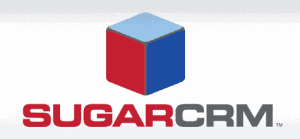Just how sweet is Sugar?
This matchup of SugarCRM vs Zoho is interesting because, although SugarCRM is more expensive than Zoho CRM (seemingly) as a rule, SugarCRM Professional Edition (PE), a mid-level business program, costs roughly the same per user as Zoho CRM Enterprise Edition (EE), a higher-level business program. We won’t rush to conclusions yet, because words like professional, standard, and enterprise are all quite subjective terms. We’ll take a look at actual product specs to see how these two really match up.
SugarCRM vs Zoho Round One: The Costs*
As aforementioned, we’ll be comparing two different-tiered programs similar in pricing: Zoho CRM EE comes in at $50 per user per month and SugarCRM PE at $52 per user per month.
- It costs roughly $6000 to board 10 users of either Zoho CRM EE or SugarCRM PE for a year.
- For the sake of comparison, it costs $10,200 ($85/user/mo) to board ten users on SugarCRM EE, the supposed equivalent to Zoho CRM EE. That won’t be factored into our decision at the end of this bout, but, keep it in mind.
Another thing to keep in mind: Zoho CRM offers a monthly pricing plan (truly $50 per month) whereas the price per user for SugarCRM is still $52 per month, but, it can only be paid in one sum annually. Thus, you have slightly less flexibility with SugarCRM’s payment plan. However, this won’t affect every business owner.
As the price is dead even between SugarCRM vs Zoho CRM in this round, we’re calling it a tie.
*Pricing updated June 2021
Round Two: Tracking the Sales
Sales is the bread and butter of most businesses, so, having a robust system for tracking sales is of utmost importance. Both SugarCRM and Zoho recognize this; SugarCRM packs the ability to track Leads, Contacts, and Opportunities, plus the ability to generate Sales Forecasts and Quotas. While this is a sizable list of features in itself, Zoho CRM packs all these and the ability to track competitors, sell as a team, create macros, and keep track of certain activities using a feature called feeds.
Feeds is a feature that turns Zoho CRM into a sort of social network, giving users the ability to track (or “follow”) certain users, tasks, or records, and lets users communicate about those items by adding comments to them. This is an especially useful communication method for larger or disconnected offices; comments left this way are searchable inside Zoho and linked to specific activities, making looking up past conversations a bit easier than searching through multiple email threads about the same subject.
Because of Zoho CRM’s added features for the same price, this round goes to Zoho.
Round Three: How Social do you wanna get?
In today’s business climate, having a presence on social networks is absolutely key to engaging prospective customers and keeping current clients in the loop about your goings-on. That said, in the battle of SugarCRM vs Zoho CRM, both programs have a share of social interaction options.
SugarCRM PE lets its users interact with followers via Facebook and Twitter with integrations to both programs. By itself, this is a fine starter pack of sorts for social networking, but, that’s all SugarCRM offers in that regard. Zoho CRM EE offers the ability to monitor social mentions, making it easier to track customer interactions (or places where you’ll want to engage a customer who calls on you publicly), as well as a built-in tab for both Facebook and Twitter.
Overall, Zoho CRM gives users more social networking capability. Being able to track social mentions would seem worth paying an additional price by itself, but, as Zoho CRM is still the same price as Sugar CRM, this round also goes to Zoho.
Round Four: Wanna Automate that Marketing?
Marketing automation is key for businesses that want to reach a wide audience quickly while also managing email and marketing campaigns. Marketing automation as a concept seems to have evolved at a perfect time, as social media and other electronic marketing channels are more important than ever to the health of – at the very least – any tech-minded business, and many other kinds as well.
That said, hopefully your answer to that question above is a resounding yes.
Both Zoho CRM EE and SugarCRM PE come out of the box with a host of marketing automation tools, from web-to-lead capturing ability to mass emailing, email templates, and tracking campaigns themselves. Zoho CRM comes with one extra tool: autoresponders, which send messages to mailing lists based on time or click-through statistics. Some businesses may find this tool extremely useful, but, I don’t think its inclusion alone is enough to push Zoho over the top; thus, this round is a tie.
SugarCRM vs Zoho CRM Bonus Round: What About Workflow Management?
For those not in the know, workflow management is simply a term for when your CRM reminds you or prepares you to do certain tasks in order. The tasks you can program a CRM with workflow management capability to carry out are limitless, from simple email reminders upon moving records from one stage to another, to making certain information appear inside custom modules upon modifying a record, to programming a particular action to occur a certain time after another event has occurred. (It’s kind of like having your own personal assistant.)
Zoho CRM EE comes with all those abilities, including automatic lead assignment, case escalation (which prioritizes certain activities above others in certain circumstances, which you may set), and completely customized functions. This round is a bit of a mismatch, as SugarCRM PE doesn’t contain any of the marketing automation abilities listed (and none others, either). This makes Zoho the unequivocal winner of the round.
Who’s the champ in SugarCRM vs Zoho CRM?
Determining the victor between SugarCRM vs Zoho CRM was simple. For the price, Zoho CRM EE offers more features than SugarCRM PE, plain and simple. Based on this alone, we dub Zoho CRM the winner of this bout. As always, this review doesn’t take into account things like ease of use, general Zoho consulting services, or Zoho support plans, which can be very subjective topics. Be sure to schedule a walkthrough of the CRM that interests you most before you make any big decisions.
Bonus Round: There’s even more to Zoho than meets the eye
Just when you think the bout is over and you’ve decided the victor in this Sugar CRM review with Zoho, hang tight! There’s still one more thing to consider. We’re admittedly a bit biased over here, as we’re Zoho consultants, but we’d be remiss if we didn’t mention that by choosing Zoho over Sugar, you’re not only gaining access to all of Zoho’s apps aside from the CRM, but you can also tap into Zoho’s extensive network of partners – including us. You can use your Zoho partner’s expertise to figure out the best way to solve your business problems using Zoho now, and also put together a sort of road map for the years to come, that way there’s no reworking of your system and no abandoning ship after a small handful of years.
Aside from the CRM, Zoho offers a help desk app (Zoho Desk), as well as a finance app (Zoho Books). Zoho’s platform as a service (Zoho Creator) can be used to improve the functionality of existing Zoho apps, or create entirely new ones to suit your business needs. If you were considering something like Sugar CRM to begin with, chances are its malleability caught your eye. Zoho offers that same sort of feature in Creator, and Zoho’s partners can help with this, too. All of these apps are available as part of Zoho One, a suite of 40+ apps available for $35/user/mo.








